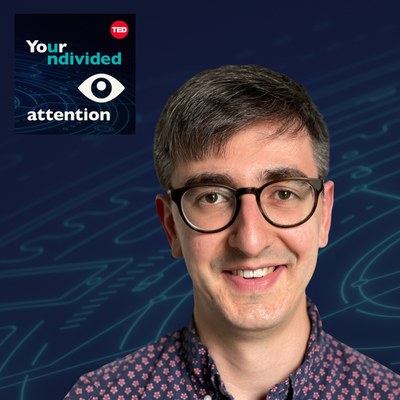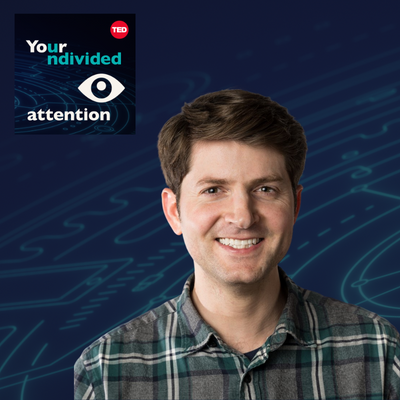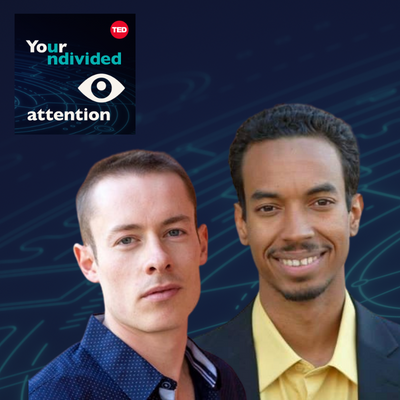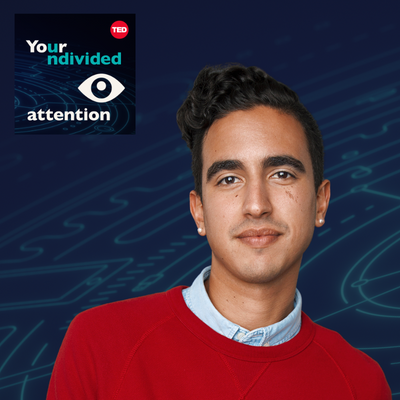Episode 56 | Sep 22, 2022
Fighting With Mirages of Each Other with Adam Mastroianni
Have you ever lost a friend to misperception? Have you lost a friend or a family member to the idea that your views got so different, that it was time to end the relationship — perhaps by unfriending each other on Facebook?
As it turns out, we often think our ideological differences are far greater than they actually are. Which means: we’re losing relationships and getting mired in polarization based on warped visions of each other.
This week on Your Undivided Attention, we're talking with Adam Mastroianni, a postdoctoral research scholar at Columbia Business School who studies how we perceive and misperceive our social worlds. Together with Adam, we're going to explore how accurate — and inaccurate — our views of each other are. As you listen to our conversation, keep in mind that relationship you might have lost to misperception, and that you might be able to revive as a result of what you hear.
CORRECTIONS: In the episode, Adam says in 1978, 85% of people said they'd vote for a Black president, but the actual percentage is 80.4%. Tristan says that Republicans estimate that more than a third of Democrats are LGBTQ, but the actual percentage is 32%. Finally, Tristan refers to Anil Seth's notion of cognitive impenetrability, but that term was actually coined by the Canadian cognitive scientist and philosopher Zenon W. Pylyshyn.
Major Takeaways
The metaphor we often use on Your Undivided Attention for social media-fueled misperception is that of a Funhouse mirror — social media reflects distorted versions of us. We see beauty-filtered versions of our own tribe, and grotesque versions of other tribes. Research like that of Adam Mastroianni's shines a laser in the Funhouse, enabling us to see its contours and how it distorts our view of reality.
What's powerful about misperception as an indicator is that it can be measured objectively. It can be hard to accurately measure people’s beliefs about polarized issues, like abortion and guns, but more straightforward to measure people's misperceptions about other peoples beliefs about those issues.
Two threads emerge from Adam Mastroianni's research: first, people worldwide believe morality has been on the decline, although there's been no evidence of that. Second, people believe the past was much more conservative and the present is much more liberal than is actually the case.
Naive realism is the idea that we see the world as it actually is. In fact, we all perceive the world through our personal experiences, biases, hopes, and fears. Or as Adam puts it, we see the world through the virtual reality goggles of our eyeballs.
The pre/trans fallacy is a phenomenon whereby two views might seem the same, but be very different. For example, one person holding an anti-vaccine view may believe that Bill Gates wants to use vaccines to implant chips in humans, while another person holding an anti-vax view is simply aware of the risks that vaccines pose to children and the immuno-compromised. Both views 'look' the same, but are formed by different belief systems.
Our misperceptions of each other have major social and political implications. Misperceptions drive hyper-polarization, and result in policies that don't represent the actual majority.
Technology could be designed in order to help alleviate misperception. For example, humane social media might involve 'double confirmation' — whereby our interlocutors would confirm that we understand their views correctly as a prerequisite for engaging in dialogue.
Other recommended reading
Widespread Misperceptions of Long-term Attitude Change
https://www.pnas.org/doi/abs/10.1073/pnas.2107260119
Adam Mastroianni's research paper showing how stereotypes of the past lead people to misperceive attitude change, and how these misperceptions can lend legitimacy to policies that people may not actually prefer
Experimental History
https://experimentalhistory.substack.com/
Adam's blog, where he shares original data and thinks through ideas
Americans experience a false social reality by underestimating popular climate policy support by nearly half
https://www.nature.com/articles/s41467-022-32412-y
Academic study showing that Americans are living in what researchers called a “false social reality” with respect to misperceptions about climate views



